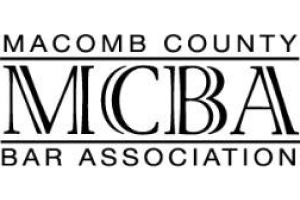- Free Consultation: (586) 264-3756 Tap Here to Call Us
The Driver’s License Appeals Process – Part 1
You are nearing the end of your suspension or revocation of driving privileges from the Michigan Secretary of State. The past year or the past five years have been very difficult. You have worn out your welcome from friends and family who have shuttled you to and from work and errands for the past few years. Your ability to maintain employment has been precarious, at best. After all, you don’t live in Boston, Chicago or Toronto, cities known for providing excellent public transportation. You live in Metro Detroit, the car capital of the United States. Now what?
In Michigan, the process of getting your license back is simple, but the path must be followed carefully. We liken the process to climbing a mountain you have never seen before. You know your goal is to reach the summit, but you need a Sherpa, a guide, to lead the way to avoid any pitfalls along the way. You can chance the climb on your own, and you may be successful. However, if you are not successful, the results can cause setbacks.
Many clients seeking reinstatement, or at least partial reinstatement of driving privileges have previously tried to climb that mountain on their own, and they were unsuccessful. It is not that the process is complicated; it is just that they sometimes skip a few steps in the process. They begin the ascent without all of the necessary tools. They believe that if they appear sincere, the hearing officer will restore privileges. Let’s focus for a second on that sentence. In Michigan, driving is not a right…. it is a privilege. You may hear this once or twice from other people you speak with. The hearing officer may even say this during your hearing. This is the mindset in the State of Michigan.
First and foremost, the DUI lawyers at SMDA keep contact with a variety of different substance abuse counselors and related professionals. The first thing we do before requesting a hearing, is instruct our clients to have a substance abuse assessment performed. This process typically involves meeting with a licensed counselor experienced in assessing and treating individuals with alcohol and other substance abuse issues. Depending on whether you possess insurance or not, the typical cost for an assessment is $250-500. Despite the number of pages contained within the final assessment itself, we will focus on the prognosis for continued sobriety. We like to see phrases like words like, “the prognosis for maintaining sobriety is good,” or, “the prognosis for continued sobriety is encouraging.” When we see that the prognosis is “guarded” or “poor,” we will typically recommend that our clients wait for a period of time, continue in AA attendance and counseling and have another assessment performed by a different treater a period of time later.
At the same time, we feel it is critical for our clients to attend AA. Each case and each client is unique. A client appearing before a hearing officer may be asked any of the 12-Steps or the Serenity Prayer. This is why it is important to not simply memorize the steps, but to demonstrate that the client is living these steps. Often times, a hearing officer will want to know if the client was attending AA meetings at the same location on a consistent basis and if the client has a sponsor. As an aside, if a client has a sponsor, we like to have the sponsor attend the hearing with the client for support and to provide testimony at the hearing to the hearing officer. more The measure of your sobriety is critical, whatever that length of time might be. If you have had lengthy periods of sobriety, only to relapse, then it becomes important to demonstrate why you have confidence that you will be able to maintain continued sobriety this time around, rather than the previous time. What is different this time around? Why should the hearing officer be confident that you will maintain sobriety this time? “Well, it is because I am not surrounding myself with the friends who used to drink before.” Or, “I have been regularly attending AA meetings, and I have a support I didn’t previously have.” Or, “I saw a friend continue drinking and he eventually died of cirrhosis of the liver. This had a ‘sobering effect’ on me. I don’t want to end up the same way.” Whatever the reason, a client needs to convince, articulate and demonstrate that he has the tools and resources to maintain his sobriety. A client should know the date when they had their last drink.
This may seem like an abrupt place to end this post, but the restoration process is a process. In the next post, we will discuss the hearing itself and the process of demonstrating sobriety. Remember, before you ascent toward that summit; hire a guide, or Michigan DUI attorney to help you get to the top. Contact the attorneys at SMDA today. Don’t go at it alone.
Related Blogs: The Role of a Michigan DUI Attorney and Client Addiction An Overview of Michigan Licensing Sanctions











